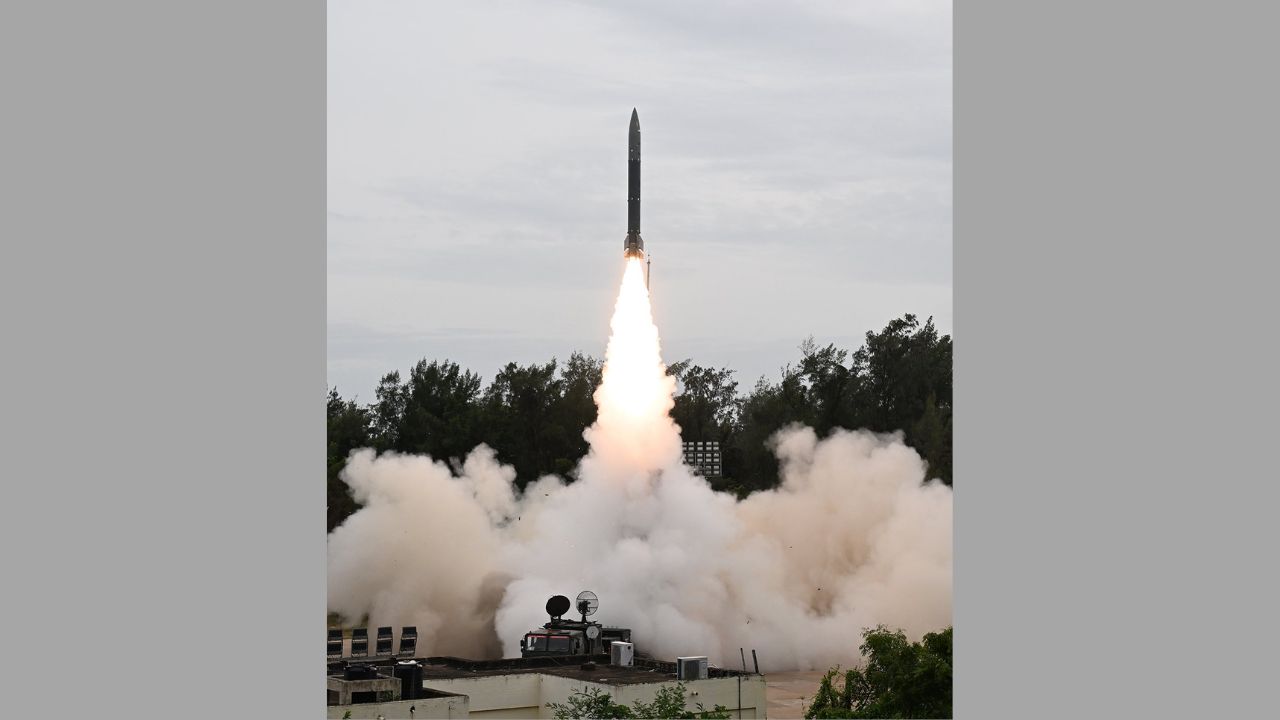 English
English

During the tests, all subsystems performed as per expectations, which were verified using test data captured by various tracking sensors deployed by Integrated Test Range (ITR) including instruments deployed on a ship positioned near the designated impact point.

Pralay Missile flight-tests successfully done
New Delhi: Defence Research & Development Organisation (DRDO) has conducted two consecutive successful flight-tests of Pralay missile from Dr APJ Abdul Kalam island off the coast of Odisha on 28 and 29 July, reports Dynamite News correspondent.
Dr APJ Abdul Kalam Island is one among a group of five islands located in the Bay of Bengal, approximately 10 kilometres (6.2 mi) off the eastern coast of India, and about 70 kilometres (43 mi) south of Chandipur in Balasore district, Odisha.
After the flight-tests the DRDO took to social media X and announced that they were successfully conducted.
Two consecutive flight trials of ‘PRALAY’ missile was successfully carried out on 28th and 29th July 2025 as a part of User Evaluation Trials to validate the maximum and minimum range capability of the missile system. The missiles precisely followed the intended trajectory and… pic.twitter.com/jhr0fTMZuF
— DRDO (@DRDO_India) July 29, 2025
The flight tests were carried out as a part of User Evaluation Trials to validate the maximum and minimum range capability of the missile system.
The Ministry of Defence (MoD) in an official statement said, "Defence Research & Development Organisation (DRDO) conducted two consecutive successful flight tests of the Pralay missile from Dr APJ Abdul Kalam Island off the coast of Odisha on July 28 and 29, 2025."
The MoD statement further said that the missiles met all the test objectives and followed the intended trajectory and reached the target point with pinpoint accuracy. During the tests, all subsystems performed as per expectations, which were verified using test data captured by various tracking sensors deployed by Integrated Test Range (ITR) including instruments deployed on a ship positioned near the designated impact point.
According to MoD, Pralay is an indigenously developed solid propellant quasi-ballistic missile employing state-of-the-art guidance and navigation to ensure high precision. The missile is capable of carrying multiple types of warheads against various targets.
The system has been developed by Research Centre Imarat in collaboration with other DRDO labs--Defence Research & Development Laboratory, Advanced Systems Laboratory, Armament Research & Development Establishment, High Energy Materials Research Laboratory, Defence Metallurgical Research Laboratory, Terminal Ballistics Research Laboratory, Research & Development Establishment (Engineers) and ITR etc; industry partners - Bharat Dynamics Limited & Bharat Electronics Limited and many other industries and MSMEs.
Senior scientists of DRDO, representatives of the users from the Indian Air Force and the Indian Army, as well as the industry representatives witnessed the flight tests.
Raksha Mantri Rajnath Singh after the successful flight-tests hailed the Armed Forces, and DRDO for their hard work and efforts. Raksha Mantri said, the missile equipped with modern technologies will give a further technological boost to the Armed Forces against threats.
Raksha Mantri Shri Rajnath Singh complimented DRDO, Armed Forces and the Industry for the successful flight tests of Pralay missile system. He stated that the missile equipped with modern technologies will give further technological boost to our Armed Forces against threats. https://t.co/QKdS2jx9ow
— रक्षा मंत्री कार्यालय/ RMO India (@DefenceMinIndia) July 29, 2025
The Ministry of Defence took to social media X and wrote, "The @DRDO_India has conducted two consecutive successful flight tests of Pralay Missile on 28th and 29th July 2025 from Dr APJ Abdul Kalam island off the coast of Odisha."
Dr Samir V Kamat, Secretary, Department of Defence R&D and Chairman of DRDO also congratulated the teams, stating that the successful completion of these phase-1 flight tests paves the way for induction of the system into the Armed Forces in the near future.